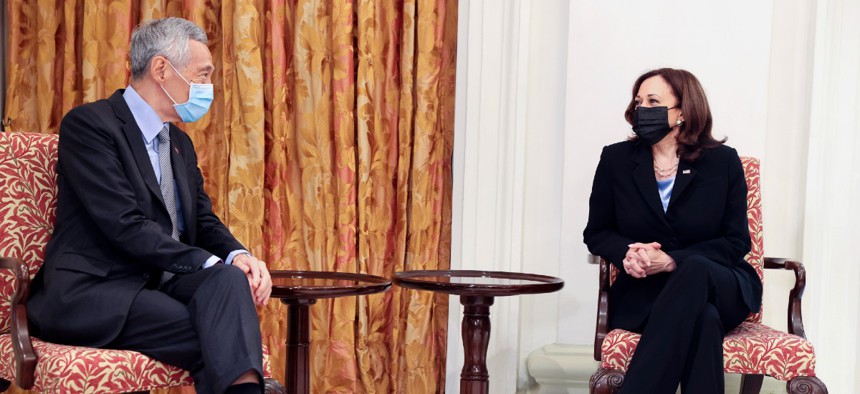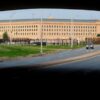The move comes as China has become more assertive in the region.
The U.S. Cybersecurity and Infrastructure Security Agency has committed to working with the Cyber Security Agency of Singapore on research and development and critical technologies, as part of a broader effort to increase ties between the two nations.
“Besides strengthening information sharing, fostering cybersecurity exchanges between Singapore and the U.S., and cooperation through joint exercises, the [Memorandum of Understanding] will expand into new areas of cooperation such as critical technologies, and research and development,” CISA said in a press release Monday.
The MOU—signed by CISA Director Jen Easterly and David Koh, chief executive of Singapore’s CSA—also covers coordination on cyber incident response capacity building across Southeast Asia, and is one of three cybersecurity agreements the countries made, according to a fact sheet the White House released following a face-to-face meeting between Vice President Kamala Harris and Singapore’s Prime Minister Lee Hsien Loong.
The other cybersecurity agreements were between the U.S. Department of the Treasury and the Monetary Authority of Singapore to guard against threats specifically facing the financial sector and between the U.S. Department of Defense and Singapore’s Ministry of Defense.
The military MOU “will support broad defense cooperation to advance cybersecurity information sharing, exchange of threat indicators, combined cyber training and exercises, and other forms of military-to-military cooperation on cyber issues,” according to the White House fact sheet.
The cybersecurity agreements are part of a broader effort that includes collaboration to combat climate change and future pandemics, foster innovation and growth—including through the advancement of sustainable smart cities and supply chain resiliency—and on “common security challenges.”
U.S. officials have recently highlighted escalating tensions with China, including as part of the decision to withdraw U.S. troops from Afghanistan, and Singapore is in a crucial position as it has tried to remain neutral, maintaining relations with both China and the U.S. as territorial disputes with nations like Malaysia and the Philippines heat up in the South China Seas.
“We’ve been pretty clear that we’re not asking countries to choose; we’re trying to develop these partnerships for a whole bunch of positive reasons that are in our mutual interest,” senior administration officials said Sunday night briefing reporters on the meeting. “I think this notion of the independence and sovereignty of the countries in the region and freedom of navigation, peaceful settlement of disputes, good governance—these are principles the United States and its partners in Southeast Asia, including Singapore, firmly believe in.”
As part of the security agreement, the U.S. reaffirmed its commitment to having a strong military presence in Southeast Asia, “including through rotational deployments of U.S. P-8 aircraft and littoral combat ships to Singapore.”
The U.S. also committed to expanding ties with Singapore through academia, establishing an advisory center in the country through the U.S. Chamber of Commerce to help those interested in pursuing higher education in the states.




























You must be logged in to post a comment Login